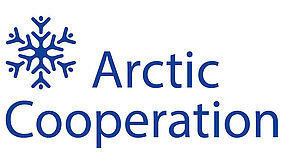ARCTIC PACER, or ‘Arctic public services innovation cluster’ project, clusters 5 international projects approved by Botnia Atlantica, Interreg Nord and Northern Periphery and Arctic Programmes to explore innovative solutions for participative, user-centred, quality and sustainable digital public services in Arctic regions.
The project, led by ERNACT and approved by Arctic Cooperation cross-programme collaboration, has started in January 2020 and will run for 12 months.
Public services provision in remote and sparsely populated areas is becoming a common challenge in Arctic territories. Factors such as low-density populations, long distances and other physical barriers, youth out-migration and shortage of human and material resources are putting the public service providers in high pressure to deliver quality and sustainable services. By clustering the following five projects, the partnership will explore new integrated solutions for complex public services delivery:
- EMERGREEN, represented by ERNACT (Ireland), focuses on the introduction of new emerging technologies and shared solutions.
- @geing online, represented by Åbo Akademi University (Finland), stresses on the importance of involving end-users in the development of meaningful digital services.
- BitStream II, represented by Umeå University (Sweden), explores innovative business models for citizen centric public services.
- CYNIC, represented by Luleå University of Technology (Sweden), aims to facilitate test environments for SMEs to develop new digital services.
- IMPROVE, represented by ERNACT (Ireland), puts community at the centre as part of the solution to co-produce public services.
The project, that overall gathers 30 partner organisations from 20 regions and 7 countries, will take advantage of the expertise brought by the mentioned five project partnerships that are addressing similar challenges but covering different angles. “The involved partners present complementary expertise in relation to innovative public services provision. These complementarities will be key to explore innovative digital solutions to give response to complex use cases for public services provision in remote areas”, explains Jose Manuel San Emeterio, Project Manager at ERNACT.
The clustering cooperation will allow to analyse and explore solutions for complex use cases that are very difficult to address by one project on a single basis. “It is impossible to find a wide range of knowledge and access to latest innovations in a single region. Clustering cooperation enables the access to a wider target groups and relevant stakeholders enriching the process of co-creating new digital public services with and for them”, continues San Emeterio. Find out more about Arctic Cooperation.

